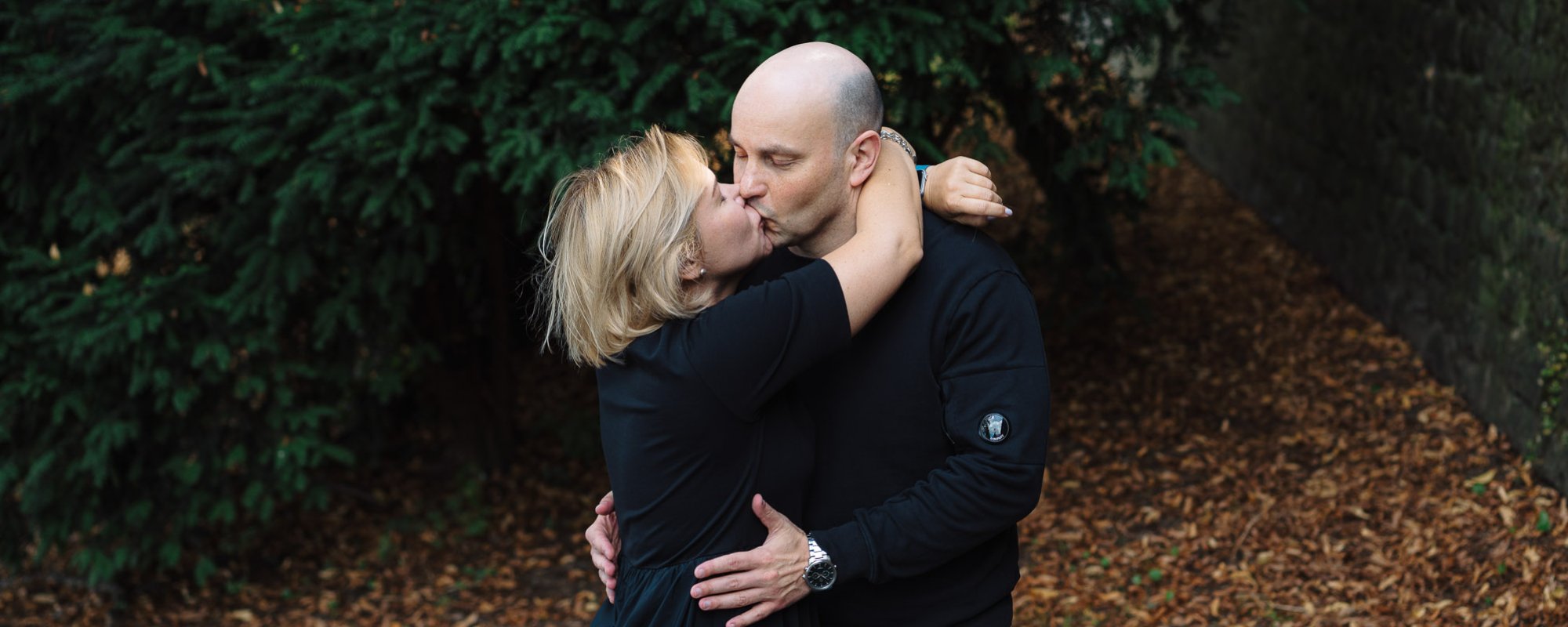An interview with Tatiana Usmanova about how she accomplished a wedding in a penal colony, defied the stereotypes of, and expectations from, the wife of a political prisoner, and overcame the uncertainty of not knowing whether her loved one will be set free on time. You can find our conversation with Tatiana’s husband, politician Andrei Pivovarov, recently set free as part of a prisoner exchange between Russia and the West, here.
Translated by OVD-Info volunteers
Localized by OVD-Info Fellow U.E.
Learn more about making a difference with our fellowships here.
— Why did you decide to get married before Andrei was released from prison?
— As long as he was in prison, judges, bailiffs, investigators, and prosecutors didn’t fail to remind me that I was a nobody to him. As if they weren’t aware of notions like «partner» or «girlfriend». The judge even hurled me out of the courtroom because, as she saw it, I was smiling at Andrei, and he was smiling back at me.
He was detained in May 2021, sentenced in the summer of 2022, and a year later, in the summer of 2023, we had our wedding. Throughout these two years, all this time, we hadn’t seen each other once, except for in court, and even there from afar — Andrei was in a dock, and I, if they let me, sat among the audience. We had no meetings, not a single phone call. At that time he was not officially convicted, so we were barred from having extended visits by law — only short ones were permitted, but even those were not granted.
When Andrei was admitted to the colony in Segezha (a town in the Republic of Karelia, northern Russia — OVD-Info), we entered a new level of fighting this system and realised we were entitled to demand extended visits. We had two issues with this. The first was that Andrei was placed in a single cell-type room, and those held there were not allowed any visits. The second was that we were not registered as married officially., Technically, the law says people are entitled to a visit even if they’re not registered as married, but it was plain as day that there would be no leniency in our case.
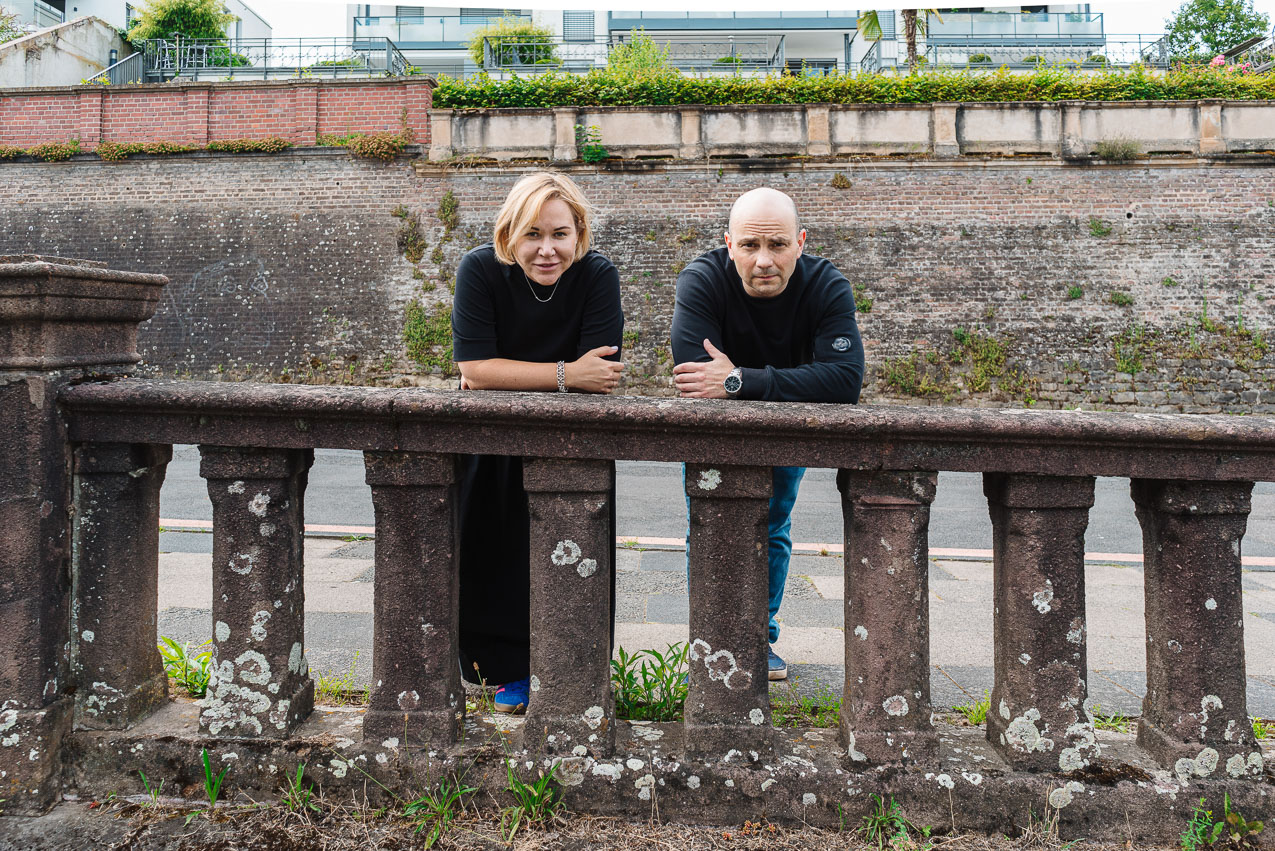
Tatiana Usmanova and Andrei Pivovarov in Bonn, Germany, August 5, 2024 / Photo: Daria Trofimova for OVD-Info
— How did you decide to get married?
— There were no romantic proposals l. It was simply impossible because our communication was minimised: a letter would take a month and a half to reach one way, and another month and a half back. If it arrived at all — would be great, but there was a large likelihood it would get lost somewhere. It was a purely pragmatic decision. When I learned that Andrei was in Segezha, one of the first letters I sent him was a pamphlet on getting married in a penal colony. We started working based on that letter: he pursued the request from inside the facility, while I worked on this with lawyers from the outside. The facility clearly opposed us getting married, though I still don’t get what difference it makes to them. We had to overcome quite a few obstacles because they didn’t want to hand over the documents.
— How long and how hard were you fighting for this opportunity?
— It took us several months, and for the most part, the struggle was on Andrei’s part. One has to gather a basic set of documents, the head of the colony has to sign some paperwork, then I have to pick up these documents, take them to the registry office, and set a wedding date. Once in the registry office, prisoners are married on the same day. So, in Penal Colony No. 7, everyone is registered for a date that you don’t get to choose. For example, a wedding might be possible on July 26, and then the next slot would be on August 29. And you have a month before that date to submit the full paperwork to them.
They began stonewalling Andrei in the colony. Because it’s not like everyday life, where if you need a document, you can obtain it quickly — it’s not like that. If they refuse to sign something, the next meeting with the colony chief may not take place for another month and a half, and only then can all the issues with the paperwork be discussed. You can’t just go somewhere, knock on a window and get what you need. He is locked up alone and has no one to discuss urgent affairs with.
Things were getting endlessly postponed, but eventually, I ended up with some sort of package of documents in my hands. I brought them to the Segezha registry office, but the ladies there said: «What you’ve brought to us is not at all what’s required. You’re missing this thing, there’s a redundant signature here, and you need two signatures over there». And I realised that that was it, that I just couldn’t take it anymore. I had a very heartfelt conversation with them and explained that I had been fighting for these documents for several months: «I am asking you sincerely, he and I are perfectly reasonable, social people who love each other and want to get married». We had a difficult conversation.
— Was it a breakdown or were you trying to talk to them reasonably?
— No, of course not. I can’t afford any breakdowns, because we are dealing with life-changing matters, and now is not the time to relax and get hysterical. In the end, we came to a consensus. They said, OK, the missing signature is no big deal, we will come there on the day of the wedding and he will put in the missing signatures. And that’s what actually happened.
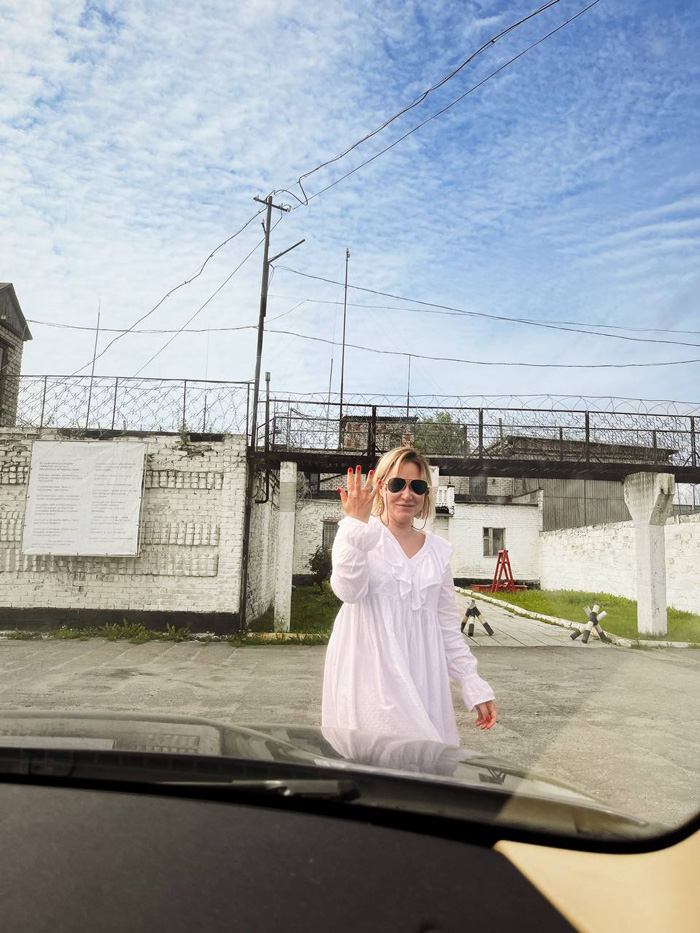
Tatiana Usmanova leaves the Segezha colony after her wedding, July 26, 2023 / Photo: courtesy of Tatiana Usmanova
— Were you faced with the decision of whether or not to support Andrei when he was arrested?
— Of course not! How could I when one of my dearest people was imprisoned. I wasn’t faced with any decision; and I didn’t ponder it for even a moment.
— What was that support like?
— It’s a 24/7 job. I’ve spent my entire life working in PR, and what happened with Andrei became a very important media campaign for me: all this time I was in contact with journalists, human rights organisations, and did my best to make as many people as possible aware of the injustice that is happening.
— Is there a particular image of what a political prisoner’s wife should be like, any expectations to be met? For instance, there is a myth that all political prisoners are automatically saints, just because they opposed the authorities. How does this stereotype reflect on their loved ones?
— I think it works when it comes to partners — both male and female. I think it is expected that if your loved one is imprisoned, you should sit at home in sorrow. Yes, you may fight for his freedom, but it is not the right time nor place to enjoy oneself.
— What do you think about it?
— I may have come up with those in my head but I haven’t had any actual conversations where people would tell me, «We didn’t think you’d be wearing red. Your husband is in prison, you should be wearing black!» like they did with Yulia Navalnaya when she went out to receive an Oscar, and was scolded because her dress was the wrong colour and because Yulia was being too beautiful a woman, while her husband was in prison. It is just madness, a stereotype which stunned me. A couple should decide for themselves how to organise their relationship. Afterall, we should live for ourselves and our families, not to meet the expectations of others.
— Did you allow yourself to feel joy?
— Certainly. It was a bit difficult, because my general condition was quite depressive, but I allowed myself to wear a red dress, meet friends, and travel to places. You must be strong and, where possible, calm if you want to support someone. When you are upset, hysterical or in internal conflict, this gets projected onto the person in prison. If my letters said that instead of attending theatre with a friend, I cried my eyes out at home — how would that be helpful for Andrei?
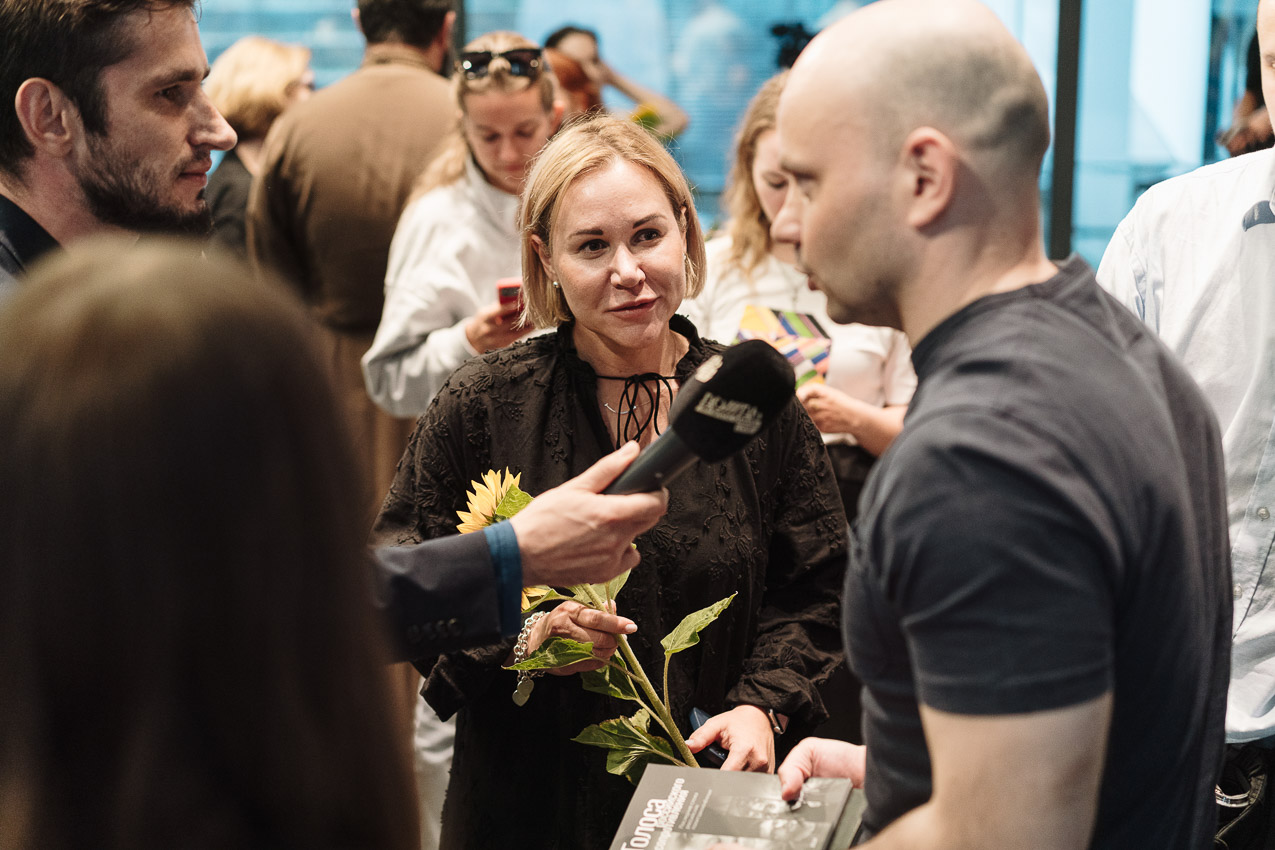
Татьяна Усманова после пресс-конференции в Бонне, Германия, 1 августа 2024 года / Фото: Даша Трофимова для ОВД-Инфо
— How do you think you have changed over almost four years?
— I have matured a lot and become even more pragmatic and rational a person than before, I think. The process of putting together packages for Andrei (they still dumbfound me, those memories, brings a lump to my throat), the travels to pre-trial detention centres and colonies with massive bags, and endlessly facing people from the system have kinda desiccated me, made me into something of a stone.
— Andrei told us it was completely unknown whether he would actually be released. There were rumours about new criminal cases. How did all this make you feel?
— From the date of his arrest, the anxiety was ceaseless — about this thing, then that thing. The weeks prior to his release were also very worrisome. I was waiting for Andrei, preparing the apartment for his arrival after release, rearranging everything and washing it, while also keeping in mind that in Russia, it doesn’t take much to instigate another criminal case. Did I suspect that a new criminal case would be brought against him and that he would not be released on September 2? I thought about it day and night.
— How can one make a confined person happy? Did you send him anything special knowing it would lift his spirits?
— I object to romanticising this whole story. In all honesty, nothing can make a person happy [in this situation]. There is a list of permitted products you can bring in, but there is little joy in them. Andrei was allowed three packages a year, 20kg each, while in Segezha. We discussed every 100g of contents of this package, because there is not much food there, and I could not just put in something that, in my opinion, would make him happier instead of what he really needed. This would not make him happier; it would make him more irritated, because he knew better what he needed. Instead, the time to bring each other happiness is now.
— Were there any critical points throughout all these years of waiting?
— The verdict. As the day was approaching I was constantly so worried about the verdict. . First, it was hard to find out how many [years] they [the prosecution] would demand; then it was hard to find out how many years they actually sentenced him to. Everything was happening in Krasnodar [a large city in southern Russia], the weather was so hot. It was extra difficult because, once the years were announced, you didn’t get to live through the pain of the sentence together — he was ushered away. You process all this pain away from one another.And on top of that, I had to pack up and give 20 interviews on the same day. So difficult. I don’t even want to think about it.
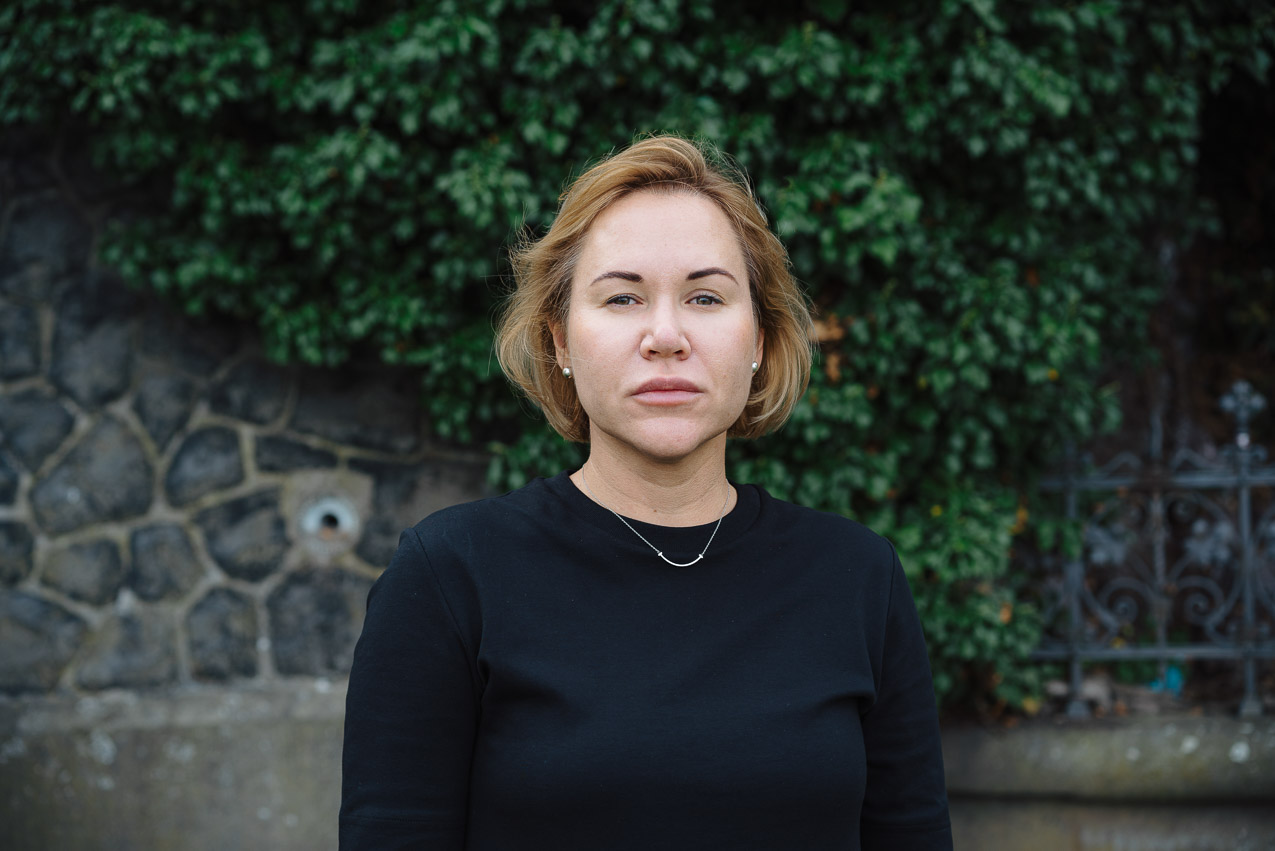 Tatiana Usmanova in Bonn, Germany, August 5, 2024 / Photo: Dasha Trofimova for OVD-Info
Tatiana Usmanova in Bonn, Germany, August 5, 2024 / Photo: Dasha Trofimova for OVD-Info
— Do you not give yourself any time to process these feelings?
— For Andrei’s case to be shared with as many people as possible was very important to me. For me that was a priority. Feelings would come at me later since everything drags on for a while. Imprisonment teaches you to perceive time differently: time expands, there is so much of it. You get very lengthy evenings and nights when you can live through everything once again.
— Andrei’s liberation, the exchange — have you already processed them as real?
— I still haven’t. I would say «some time has passed», but I just don’t know how much time has passed. If you ask me what day it is, or what date was Andrei set free, I will sincerely tell you: «I swear I don’t know». I have no idea when everything happened. I learned that he was taken from the penal colony on Saturday, July 26. This is the last day that I can recollect events clearly– it’s all still just one long, good, and difficult day that still hasn’t ended.
Marina-Maya Govzman



